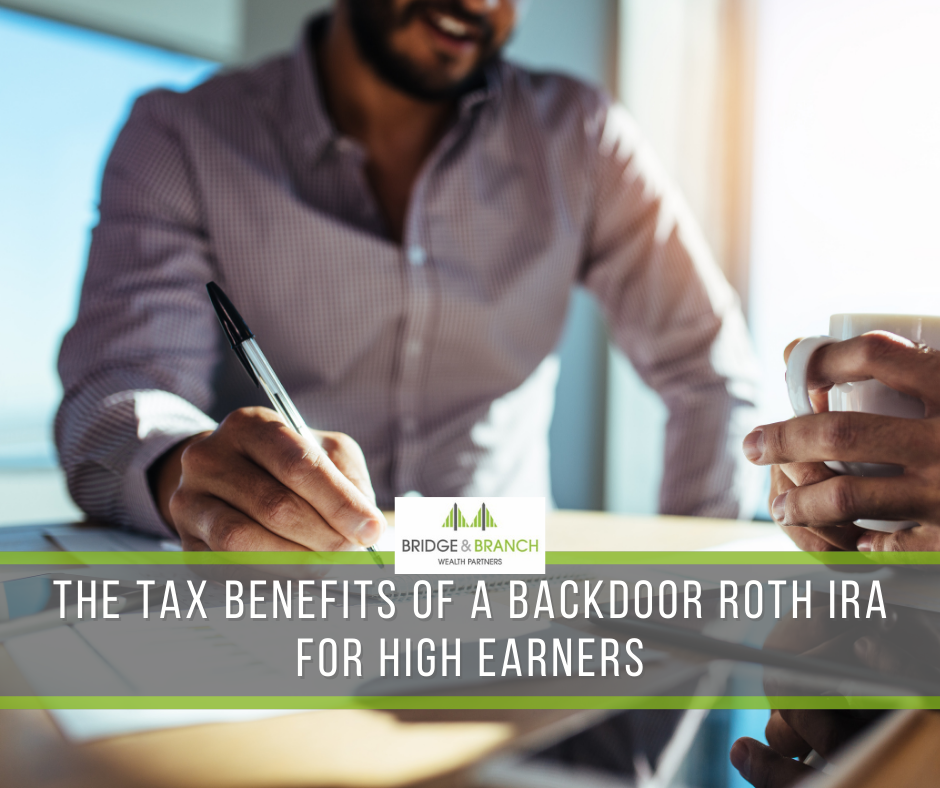A Backdoor Roth IRA is a strategy that allows individuals who earn too much to directly contribute to a Roth IRA to still contribute to one indirectly. The strategy takes advantage of a loophole in the tax code that allows individuals to convert their traditional IRA to a Roth IRA, regardless of their income level. This type of conversion has become increasingly popular in recent years because of the significant tax benefits that it offers to high earners.
The primary advantage of a Backdoor Roth IRA is that it allows high earners to take advantage of the tax benefits of a Roth IRA, which they would otherwise be unable to do. This is because there is a limit on the amount that individuals can contribute to a Roth IRA each year based on their income level. High earners, who earn too much to directly contribute to a Roth IRA, can still contribute to one indirectly through a Backdoor Roth IRA conversion.
Another advantage of a Backdoor Roth IRA is that it allows for tax-free withdrawals in retirement. Unlike a traditional IRA, which requires individuals to pay taxes on their withdrawals in retirement, a Roth IRA allows individuals to withdraw their contributions and earnings tax-free. This can result in significant tax savings for high earners, who are likely to face a higher tax bill in retirement due to their higher income levels.
Additionally, a Backdoor Roth IRA also provides flexibility in retirement. With a traditional IRA, individuals must start taking required minimum distributions (RMDs) at age 72.
However, with a Roth IRA, there is no requirement to take RMDs, which allows individuals to leave their Roth IRA to grow tax-free for as long as they live.
This can be especially beneficial for high earners, who are likely to have a higher retirement income and may need to withdraw less from their retirement accounts.
Another advantage of a Backdoor Roth IRA is that it allows individuals to avoid paying taxes on their traditional IRA contributions. When individuals contribute to a traditional IRA, they may be eligible for a tax deduction. However, this tax deduction is only temporary and the contributions and earnings will be taxed when they are withdrawn in retirement. With a Backdoor Roth IRA conversion, individuals can avoid paying taxes on their traditional IRA contributions by converting them to a Roth IRA.
Finally, a Backdoor Roth IRA can also provide estate planning benefits. With a traditional IRA, the funds are taxable when they are passed on to an individual’s beneficiaries. However, with a Roth IRA, the funds can be passed on tax-free to an individual’s beneficiaries. This can result in significant tax savings for high earners, who are likely to have a larger estate and may face a higher estate tax bill.
A Backdoor Roth IRA offers significant tax benefits for high earners. By allowing high earners to take advantage of the tax benefits of a Roth IRA, the strategy provides tax-free withdrawals in retirement, flexibility in retirement, the ability to avoid paying taxes on traditional IRA contributions, and estate planning benefits. It is a smart strategy for high earners to consider, as it can help them to save on taxes and manage their retirement savings.
Important Disclosures
The opinions voiced in this material are for general information only and are not intended to provide specific advice or recommendations for any individual. To determine which investment(s) may be appropriate for you, consult your financial professional prior to investing.
This information is not intended to be a substitute for specific individualized tax advice. We suggest that you discuss your specific tax issues with a qualified tax advisor.
Traditional IRA account owners should consider the tax ramifications, age and income restrictions in regards to executing a conversion from a Traditional IRA to a Roth IRA. The converted amount is generally subject to income taxation.
The Roth IRA offers tax deferral on any earnings in the account. Withdrawals from the account may be tax free, as long as they are considered qualified. Limitations and restrictions may apply. Withdrawals prior to age 59 ½ or prior to the account being opened for 5 years, whichever is later, may result in a 10% IRS penalty tax. Future tax laws can change at any time and may impact the benefits of Roth IRAs. Their tax treatment may change.
Contributions to a traditional IRA may be tax deductible in the contribution year, with current income tax due at withdrawal. Withdrawals prior to age 59 ½ may result in a 10% IRS penalty tax in addition to current income tax.
This article was prepared by FMeX.
LPL Tracking #1-05359893

